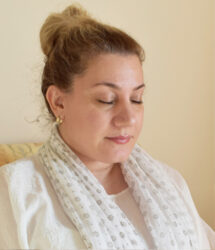Grannys Kick Up Their Heels

In 2007, a mayor in Japan organized for a group of grandmothers to perform on television to promote tourism with their song-and-dance routine. By 2010, they were national stars, representing a new, energetic attitude toward aging.
The group was called GABBA, like the 1970s Swedish disco group ABBA, except with a “G” added at the beginning for “Granny,” and their average age at that time was 76; the oldest performer was 93. Their debut song, called “Ureshika Tanoshika Chagatsuka,” translates as happy, merry and modest. The group challenged the viewpoint that older women must be tired and retiring. They performed on television and at more than 150 venues in Japan and overseas, even while some of them maintained other professions.
In the USA, aging and death keep getting postponed; life expectancy for women is over 80 years now but a century ago it was just over 50 years. At the same time, older women are at much higher risk of chronic diseases and disabling conditions as they age and are more likely to require costly long term care.
It is commonly known and common sense that women should be informed about the benefits of healthy lifestyle habits such as regular exercise, not smoking, and good nutrition—all of which will help prevent chronic and disabling conditions, including hypertension and heart disease. What isn’t commonly known, but should be shouted from the rooftops, is the fact that daily practice of the Transcendental Meditation technique slows the aging process and its worrisome symptoms and seriously reduces the chance of heart disease.
Short term TMers have an average biological age that is five years younger than their chronological age. Five years of twice daily TM practice results in, on average, a biological age 12.5 years younger than the practitioner’s chronological age.
Whereas the aging process generally increases blood pressure, recovery time, insomnia, susceptibility to stress, serum cholesterol, hearing loss, depression and health care needs, TM practice reduces those factors. And whereas aging reduces cardiovascular efficiency, vital capacity, neuromuscular coordination, visual acuity, perceptual and complex motor performance, memory, intelligence, creativity and learning ability, the Transcendental Meditation technique increases them. Overall, published peer-reviewed scientific studies demonstrate that the detrimental effects of aging can be reversed with the TM technique.
I’m 90 years old. I don’t sing or dance on television, but I do play the cello and piano in chamber music groups. And I do the TM technique and find it to be physically relaxing and rejuvenating and it makes my mind more collected. My brother does it and he’s now 96. Maybe we have what they call “good genes,” but I wouldn’t want to rely on the gene theory without the benefit of TM every day. I’m just sayin’…!





